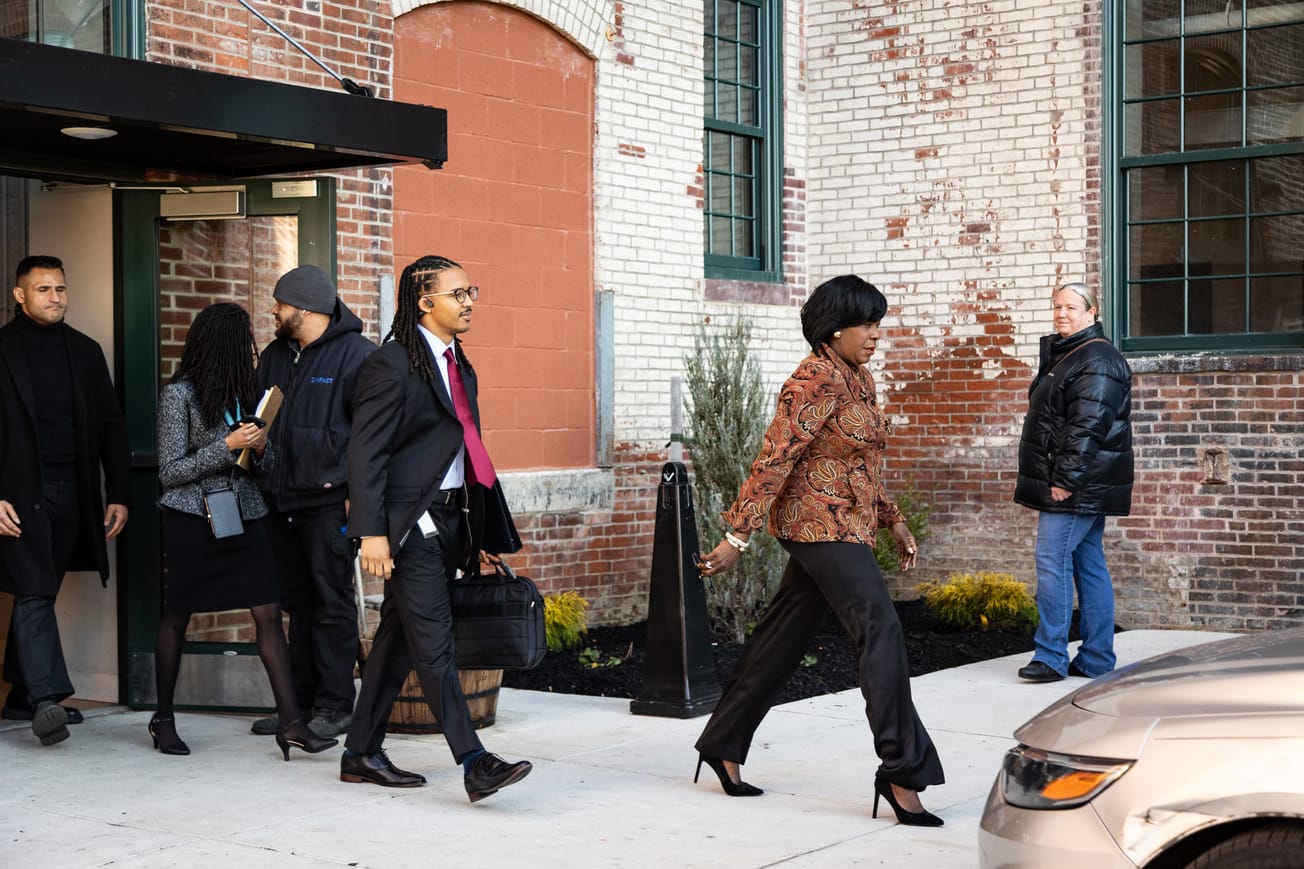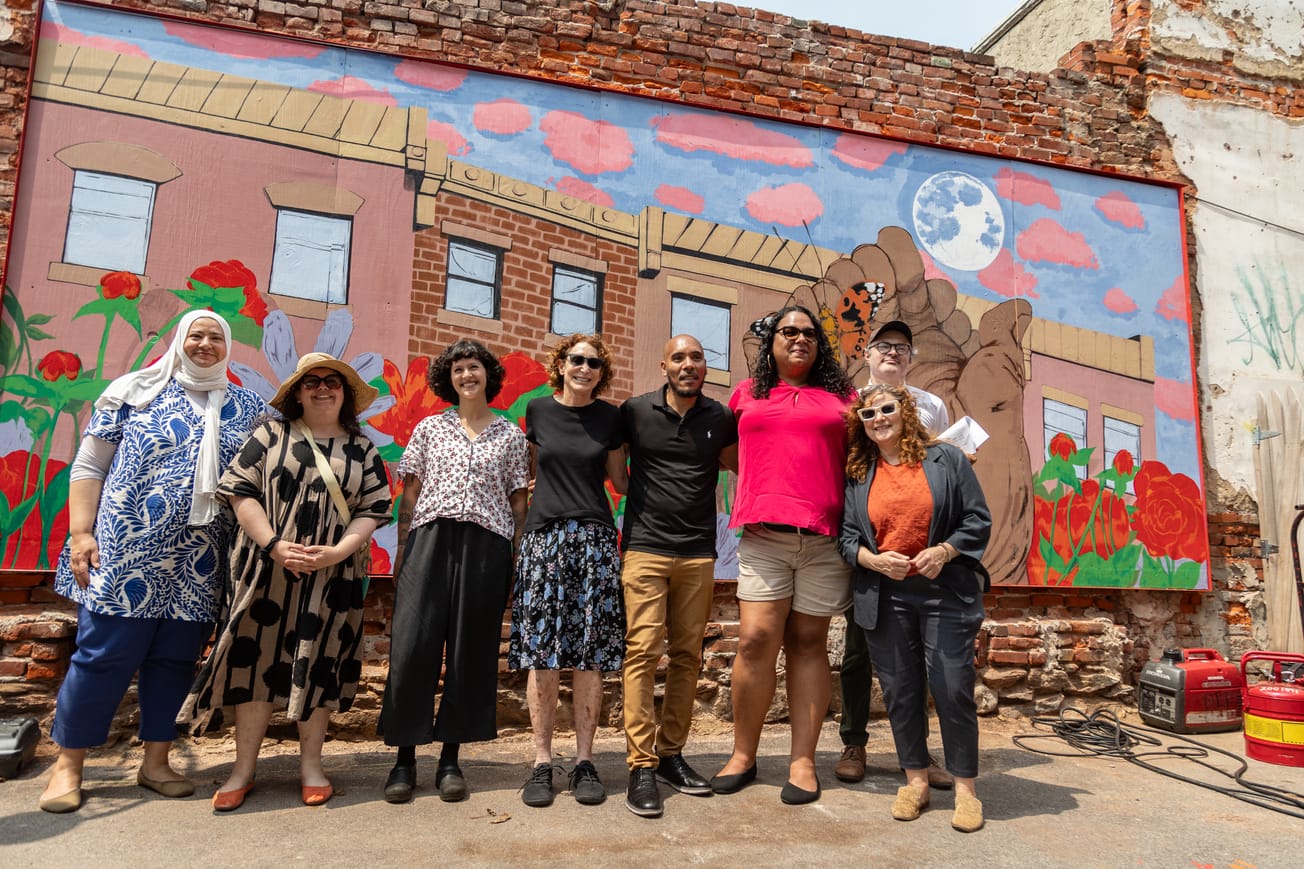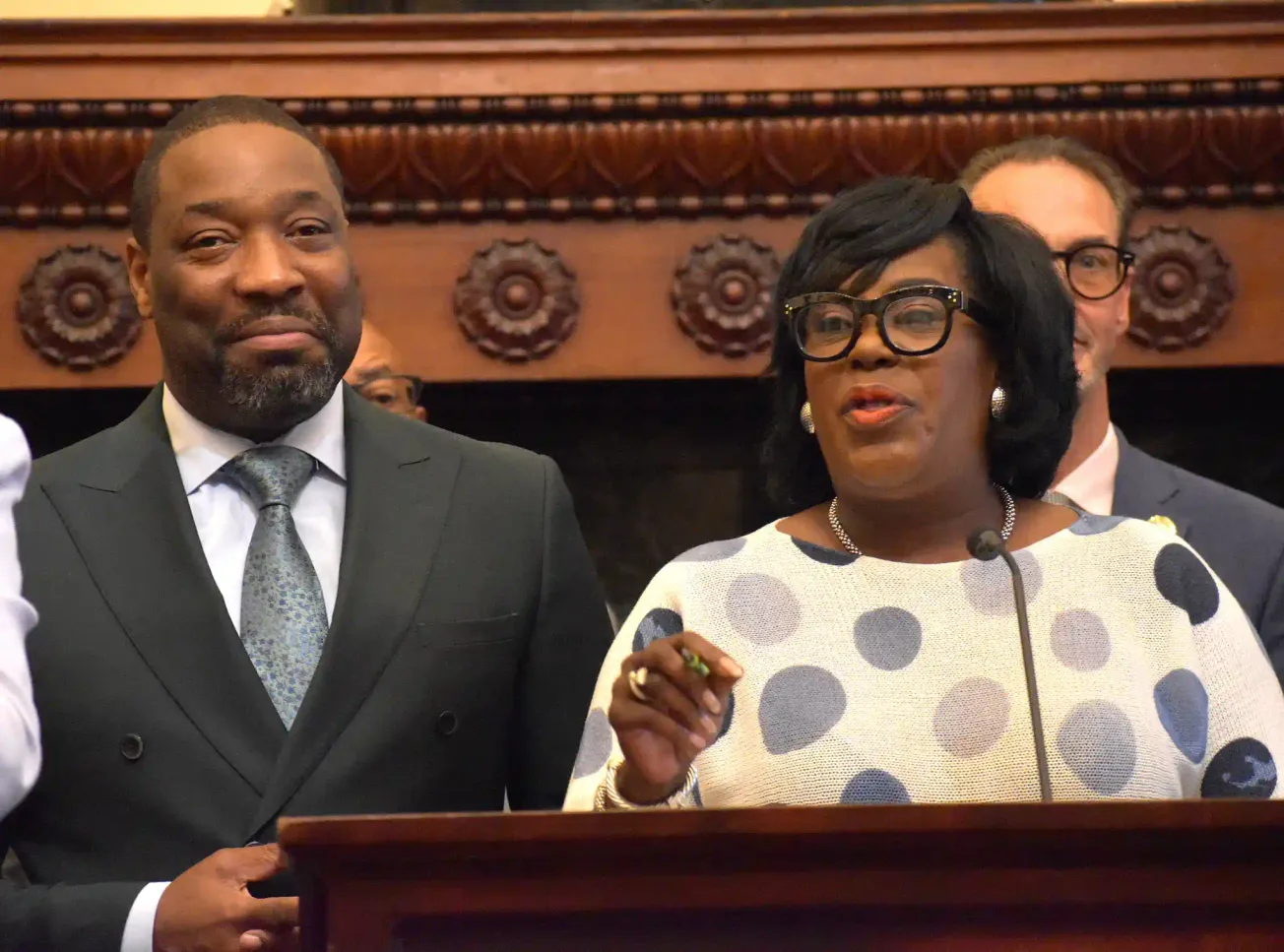Mayor Cherelle Parker walked into the Mill Redevelopment Project at A Street and Indiana Avenue Monday morning to a standing ovation and a booming round of applause.
The more than 70 community members, law enforcement officers, and elected officials gathered there continued to cheer Parker on as she announced Pedro Rosario as Philly’s first Latino deputy police commissioner.
Rosario is a captain in the city’s east detective division and says he’s worked in the Kensington community his “entire police career.”
“We’re gonna have to really change the narrative that goes on here every day and really bring back a sense of peace, and more importantly, respect and dignity for everyone who lives here,” Rosario told the crowd. “That’s my main objective.”
Darlene Burton, a member of the Harrowgate Civic Association and a 27-year resident of the area, said Rosario has been “community-oriented” and has helped her with block party permits and other tasks.
When Parker opened the meeting to comments from the audience, Burton thanked city leaders for “giving hope back to this community.”
“I know he got us,” Burton said of Rosario, followed by laughter and applause. “That gives us hope.”
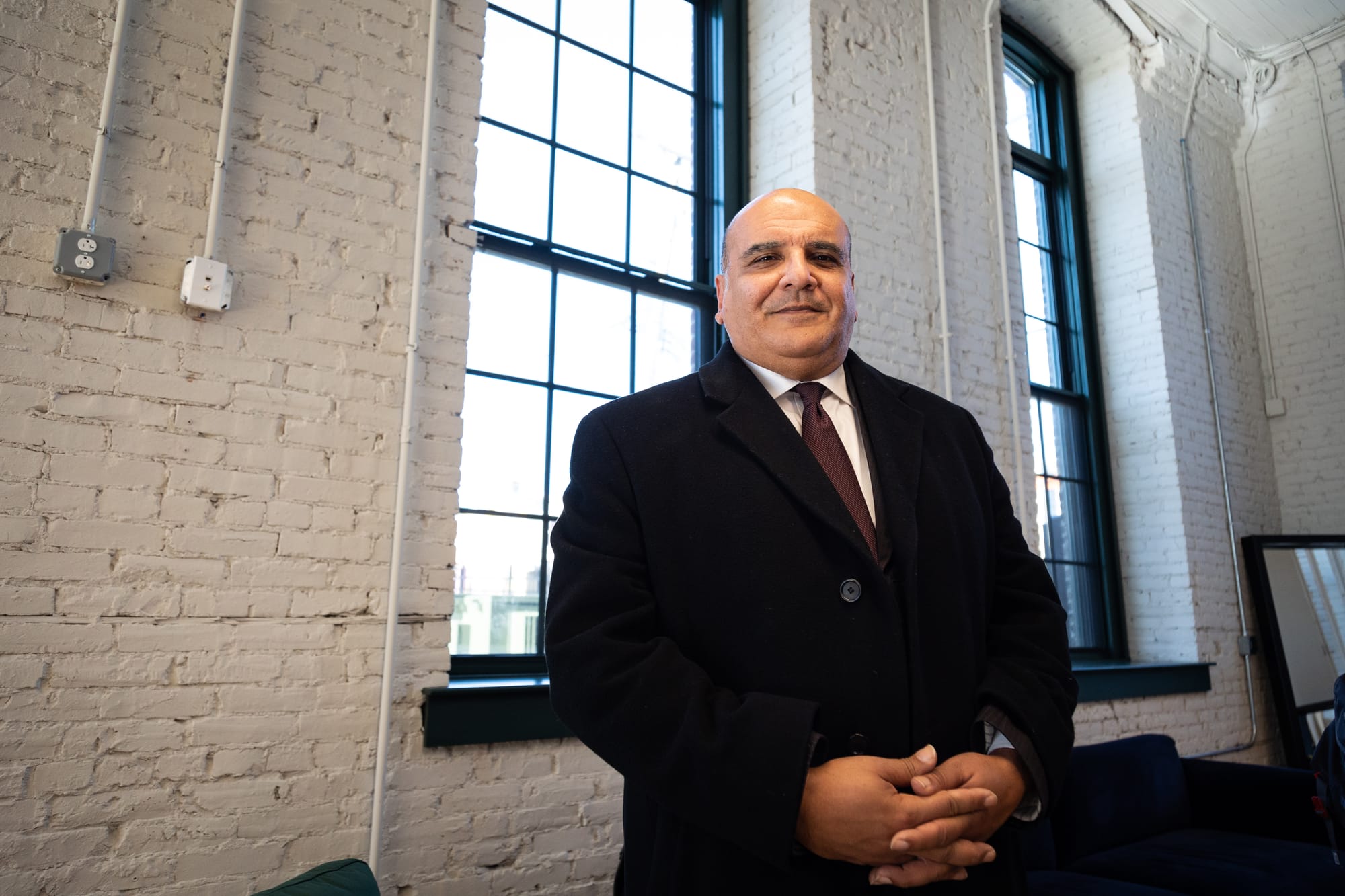
Parker’s 100-day plan, released in English earlier this month includes increasing the number of police officers citywide and “developing a strategy to permanently shut down open-air drug markets, including in Kensington.”
Much of Monday’s community discussion focused on how to connect unhoused people, including those living with drug addiction, to treatment options and long-term supportive housing.
Councilmember Mark Squilla, whose district stretches from South Philly to Kensington, said Philadelphia police officers should connect people using drugs to treatment centers, and if they refuse services, “they cannot stay and continue” their drug use on public streets and sidewalks.
"We’re not just going to sweep everybody up and throw them away – we’re going to help these folks,” Squilla told the crowd Monday. “Get them into places where they can become better citizens, make them healthy again.”
According to Squilla, helping involves a coordinated effort among city departments, social service agencies, and the diversion program AMP court.
But on-the-ground activists are skeptical. Britt Carpenter, a Fairmount resident who runs a housing and workforce development program called the Philly Unknown Project near Kensington and Allegheny avenues, said he and other outreach workers he’s spoken to weren’t invited to the meeting.
“We’re not part of the conversation,” Carpenter said. “We’re the targets because what we’re doing is what they think is enabling.”
Carpenter and a few other organizations have created a flyer to warn people about a possible increase in arrests, evictions, and confiscation of personal belongings. Tents, shopping carts, duffle bags, and open fires currently crowd the sidewalks on Kensington Avenue and the smaller intersecting streets along the business corridor.
Encampment clearings became commonplace during the Kenney administration, and residents have criticized those efforts for not producing long-term change.
Parker’s new plan is just a repeat of Kenney’s strategy, Carpenter said.
“It’s gonna be all black and white, there’s not gonna be shades of gray,” he said. “We just want to make people aware of what’s going to happen. We have to be their voices.”
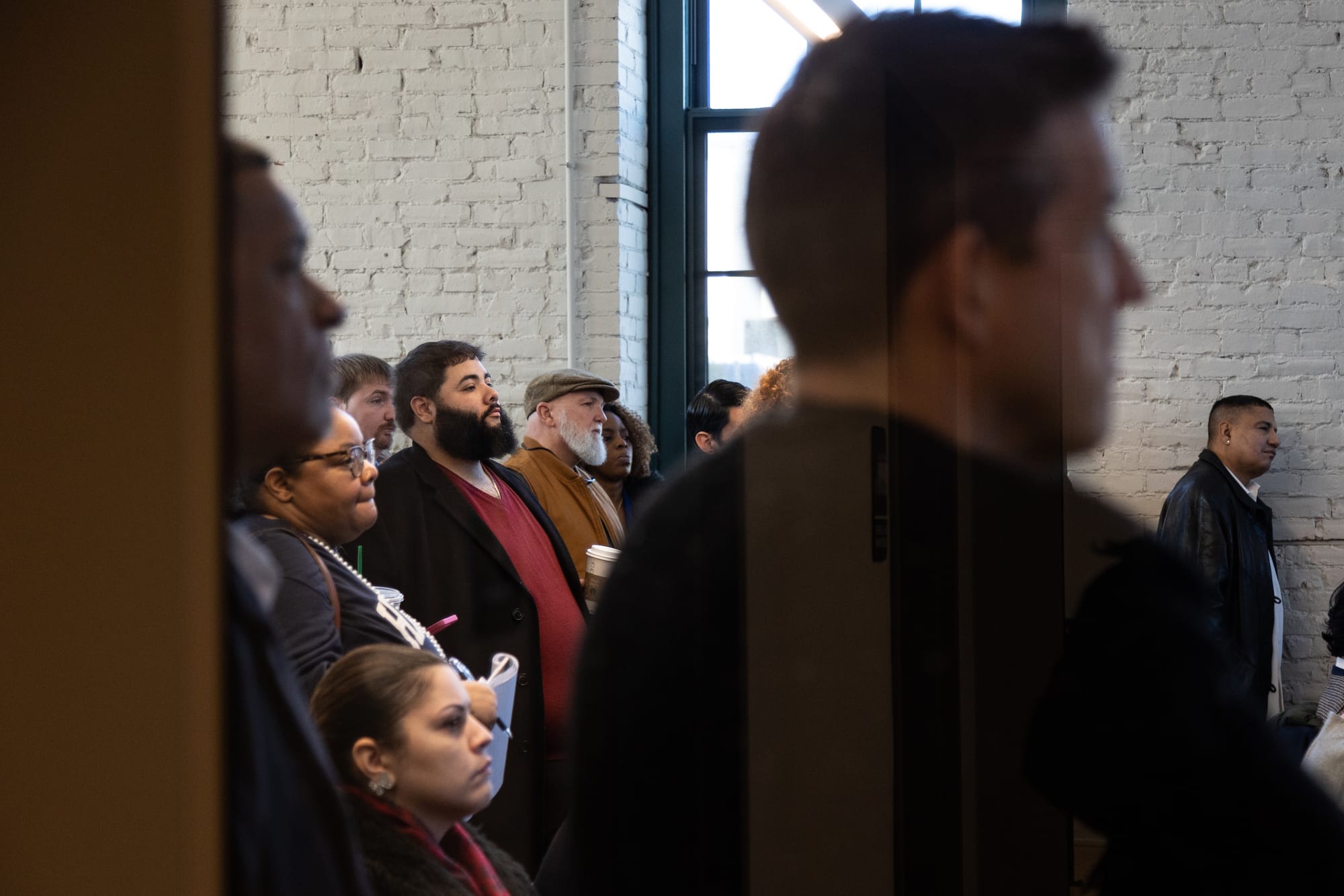
Many at the meeting wanted immediate action to reduce drug use on the streets, but Pennsylvania state law does not allow law enforcement to involuntarily commit people to treatment for using drugs the way they can with certain mental health crises.
While nobody from the Department of Behavioral Health and Intellectual DisAbility Services (DBHIDS), the Department of Health, the Office of Homeless Services, or the Opioid Response Unit spoke during Monday’s meeting, those agencies provided testimony about the challenges with forcing people into treatment during a July public hearing at Conwell Middle School.
“Providing medical care to somebody against their will is considered to be assault,” said Philadelphia Health Commissioner Cheryl Bettigole during the July hearing. “We have to convince them, we cannot just provide the care we feel is necessary.”
Rosario said the police department is still strategizing on “how to compel individuals to really accept services.” He said people will not be arrested solely for living outdoors.
“Addiction, homelessness is not a crime issue,” Rosario said. “And it's never the intention of the police department to treat those types of individuals as such, but it is important for them to understand that we all have to be accountable. We all have to be good neighbors.”
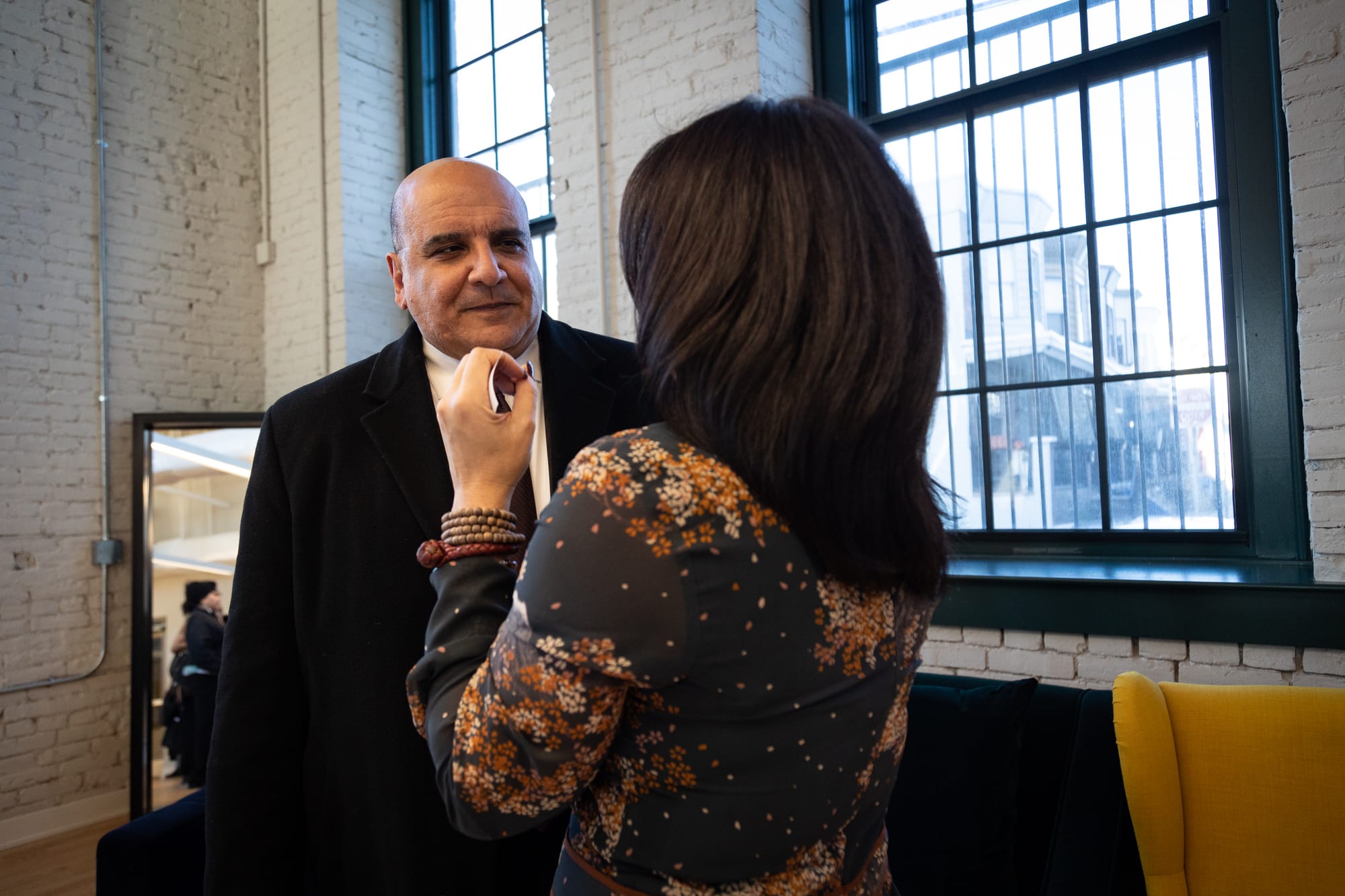
Parker’s team did not provide specifics about a public safety strategy for Kensington. But at the meeting, Parker said leaders will be focused on “prevention, intervention, and enforcement.”
While speaking at a town hall hosted by 6abc during her mayoral campaign, Parker said partnering with the National Guard would be “part of the solution” for addressing the open-air drug market in Kensington. At the Monday meeting, she criticized the media for focusing on that comment.
“They’re not thinking big picture, long game or the multiple uses or tools that we can get out of a potential partner that include more than somebody standing on the commercial corridor with an AK-47,” she said.
The city’s addiction services are currently coordinated by the city’s Opioid Response Unit, which taps other city departments to offer people free naloxone and drug test strips as well as treatment, housing and bereavement support.
This summer, the group helped distribute $2 million from the opioid settlement to 27 community groups through its Overdose Prevention and Community Healing Fund. It’s also worked with other city departments to expand mobile methadone and wound care services, and fund additional supportive housing.
Parker does not support supervised injection sites, also called safe injection sites, which Philadelphia City Council banned in most of the city in September. She said on the campaign trail that she does want to focus on “long-term care, long-term treatment, and long-term housing.”
Affordable housing came up multiple times at Monday’s meeting, which took place in a new mixed-use housing development run by Kensington nonprofit Impact Services.
Alexis Pugh, director of community violence intervention programming at Impact, said having beds available for those who are considering addiction treatment is crucial.
Pugh supports “scattered sites,” or individual low-cost housing units across the city managed by the Philadelphia Housing Authority. This idea aligns with a“housing first” model, which promotes helping people find a stable place to live while they address substance use issues and other needs.
“It’s really hard to really think about pulling yourself out of something when you’re in the belly of the beast,” Pugh said.
District 7 Councilmember Quetcy Lozada, one of the neighborhood’s three City Council representatives, supports a crisis stabilization center where people who are in detox can access a counselor to help them plan the rest of their recovery.
“That will allow them an opportunity to really stabilize themselves and think through what is my process, what is best for me,” Lozada said.
Pennsylvania Senator Christine Tartaglione also mentioned the crisis stabilization option Monday, suggesting that federal opioid settlement dollars allocated to the state of Pennsylvania could be used for that purpose.
Parker promised to tap state and federal funding to make long-term treatment and housing options a reality for Kensington.
“If the why is powerful, the how is easy,” Parker said.
Have any questions, comments, or concerns about this story? Send an email to editors@kensingtonvoice.com.

